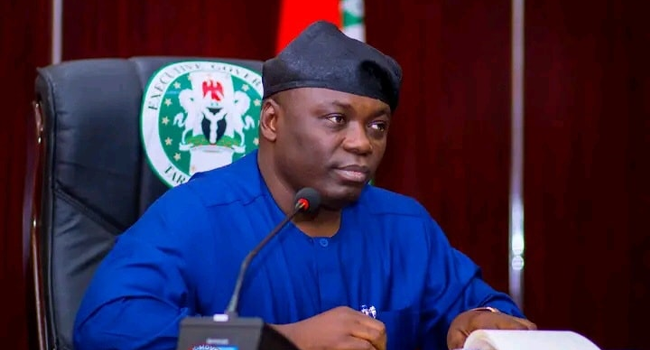Supreme Court reserves judgment in Taraba gov’ship dispute
The Supreme Court has reserved judgment in the appeal challenging the election of Governor Kefas Agbu of Taraba State. A five-member panel of justices led by Justice Kudirat Kekere-Ekun on Wednesday reserved the judgment after listening to parties in the appeal. The governorship candidate of the New Nigeria People’s Party (NNPP), Prof Yahaya Sani, is […]

The Supreme Court has reserved judgment in the appeal challenging the election of Governor Kefas Agbu of Taraba State.
A five-member panel of justices led by Justice Kudirat Kekere-Ekun on Wednesday reserved the judgment after listening to parties in the appeal.
The governorship candidate of the New Nigeria People’s Party (NNPP), Prof Yahaya Sani, is contesting Agbu’s victory in the March 18, 2023 governorship election in Taraba State.
The lead counsel for Governor Agbu and the PDP, Kanu Agabi (SAN), had pleaded with the apex court to either strike out the case of the appellants or dismiss it outright on the grounds of lack of merit.
Peseiro ‘confused’ over injury to Super Eagles striker, Sadiq
He further contended that the appeal of the appellants was grossly incompetent and full of flaws in the way it was prepared.
Also counsel for the Independent National Electoral Commission (INEC) adopted the arguments canvassed by the governor’s lawyer in resolving the dispute on the governorship election.
However, lead counsel for the NNPP and Sani, Olusegun Jolaowo (SAN), appealed to the justices to allow the case of his clients and grant all the reliefs they are praying.
The Court of Appeal in Abuja had affirmed the election of PDP and Kefas Agbu as Governor of Taraba State.
The three-member panel of the appellate court in two separate appeals held that Agbu was lawfully declared winner of the March 18 governorship election in Taraba State.
The appellate court held that the allegations of non-compliance, irregularities and other malpractices were not proved by the appellants in line with the provisions of the law.
In a unanimous judgment delivered by Justice Peter Affen, the appellate court had faulted the appellants for dumping documents on the court, stressing that even if there was manifest incidents of malpractices or irregularities on the face of the documents, the appellants ought to have led oral evidence to support the allegations.
